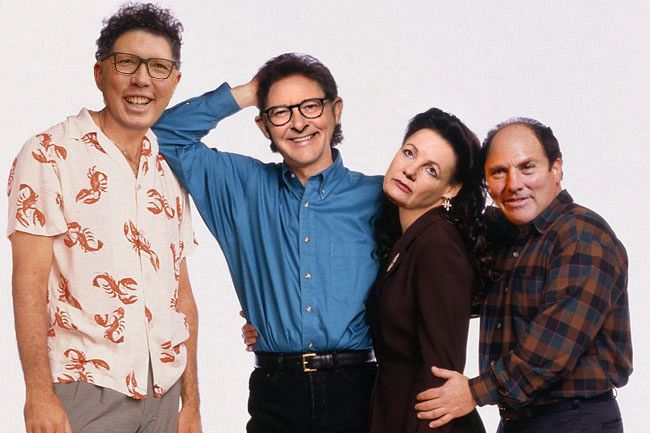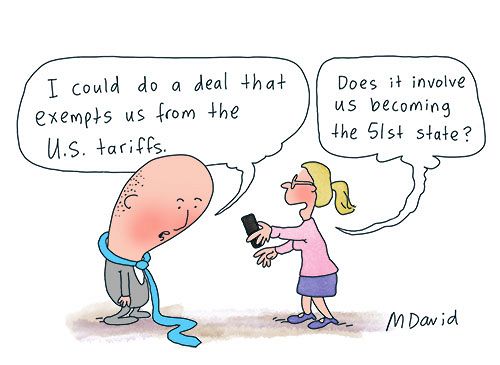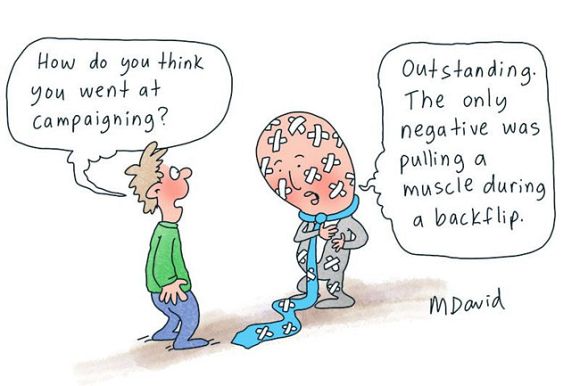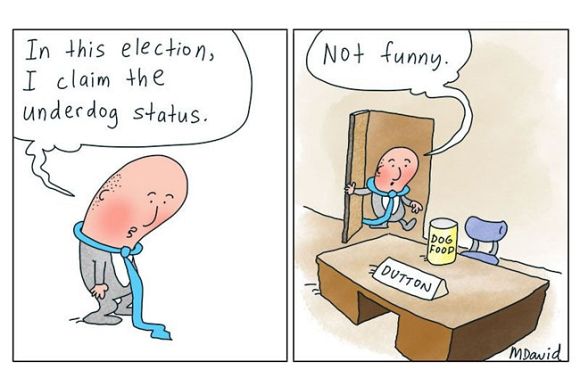The 2025 election campaign from both sides has been much like the show Seinfeld — basically, a whole lot of nothing. Lyn Bender writes.
For those who have ever watched the Seinfeld series, it remains an irritatingly, excruciatingly funny, never-ending conversation between acquaintances in an apartment building.
They dispute endlessly about trivially misunderstood concerns. Based on a misguided premise, they go on to argue about how they should proceed. Their concerns remain narrow. The big existential questions are never considered. But misconceptions abound. Such as where is Holland and who are the Dutch? They can only find The Netherlands on the Globe.
The Australian Federal election campaign for 2025 is proving to be excruciating, but not at all amusing.
It is best described like the Seinfeld series, as a show about nothing.
Noam Chomsky has identified the narrowing of the common conversation:
“The smart way to keep people passive and obedient is to strictly limit the spectrum of acceptable opinion but allow very lively debate within that spectrum...”
What is being highlighted in the current election campaign?
First prize should be awarded to: The cost of living.
A close second is housing in relation to the cost of living.
Third is energy in relation to the cost of ‘The Cost of Living’.
Fourth is which of the leaders of the major parties can be portrayed by their counterparts as the most ridiculous, wooden, inept and out of touch with the voters. Also, capable or incapable of handling ‘The Cost of Living’.
Related to this is which party is to blame for the rise in ‘The Cost of Living’?
Fifth is the old universal favourite of the many in the “West”: Immigration. It's always deemed too high and currently features in claims of clogged roads and housing shortages. At different points in Australia’s post-colonial history and the White Australia Policy, the undesirable immigrants identified have ranged from Jews, Italians, Indians, Africans and the latest non-White refugees. The list is colourful.
On the last day before pre-polling opens, there has been a frenzy of small offerings.
Law and order start to enter the campaign lexicon. Hints at policy begin to emerge.
Street interviews with random voters are asked if they feel better off than they were three years ago. Amy Remeikis contends that this is the wrong question and states:
‘...the rear-vision mirror is always a safer bet for a politician than the windscreen.’
The bigger question is which policies, properly implemented, might steer us into a troubled future.
The Seinfeld election does not open the Pandora's Box of the big questions.
This campaign avoids the crises of our time:
- the climate crisis;
- the relationship with our most dangerous ally;
- the impact of increasing floods fires and droughts;
- the degrading of International Law and the Gaza genocide;
- environmental protection;
- support of fossil fuels; and
- long-term policies.
Opposition Leader Peter Dutton spent more time explaining why the press could only be allowed one question each with no follow-up than he did answering a question. All in the name of fake equity. Brilliant evasion. In this race, the tortoise, PM Anthony Albanese, is surging ahead as the hare while Peter Dutton keeps running backwards.
There is tinkering around the edges, but fear of alienating the voters dominates.
At least everyone must buy groceries. So, sticking with the price of food is a safe bet.
Everyone needs power and utilities. Everyone needs a place to live.
True to the Seinfeld formula, the campaign refers to the housing crisis while skilfully ignoring the homes in flooded zones. That is quite a feat.
There is no mention of the impact of fires, storms, floods and drought on farming that grows our food. Safer to talk about the other evil duopoly; Coles and Woolies.
Despite its reliance on verbosity, Seinfeld never comes to any wisdom or understanding. It's non-drama occurs in limited settings — Jerry’s apartment, the coffee shop and sometimes ventures into the car park.
The trail of the election campaign troops through markets, shopping centres and tradies haunts. Sometimes, hard hats and high-viz vests are donned with pride, to illustrate being at one with the people.
However, external events can impact the best-laid plans of mice and men.
Just as the leader of the Opposition was embarking on a tirade against the crime rate in lawless Victoria under Premier Jacinta Allan, the Pope died.
There will be accolades, speeches and recognition of the compassion and love that emanated from this much-loved Pope. Defender of refugees, he called for a ceasefire in Gaza while denouncing the atrocities being committed. He cared about the poor. His legacy is one of enormous care and compassion.
It’s almost as though the Pope has wrought a divine intervention.
On the eve of the casting of the first votes, the coverage of the Election in Australia has magically almost ceased. It’s a bit harder and arguably tasteless to migrant bash when the virtues of Pope Francis are being extolled worldwide.
The Seinfeld television series was broadcast for nine seasons, from 1989 to 1998. During this time, a total of 180 episodes were produced. The final episode, ‘The Finale’, aired in 1998.
In this episode, while on their way to Paris, the protagonists of the sitcom land in a small town in Massachusetts. They ignore a local man being attacked. They are charged with lack of empathy, for the crime of showing indifference.
Lyn Bender is a professional psychologist. You can follow Lyn on Twitter @Lynestel.
 This work is licensed under a Creative Commons Attribution-NonCommercial-NoDerivs 3.0 Australia License
This work is licensed under a Creative Commons Attribution-NonCommercial-NoDerivs 3.0 Australia License
Support independent journalism Subscribe to IA.

Related Articles
- AUSVOTES ECONOMIC FACTS #16: Vote Labor for sound economic policy
- AUSVOTES ECONOMIC FACTS #15: Under Labor, prices are down
- Shock poll sees voters reject Trump in favour of an independent Australia
- EDITORIAL: Trump poll of patriots shows independent Australia a hot election issue
- Dutton rides MAGA wave as PM pitches promise














